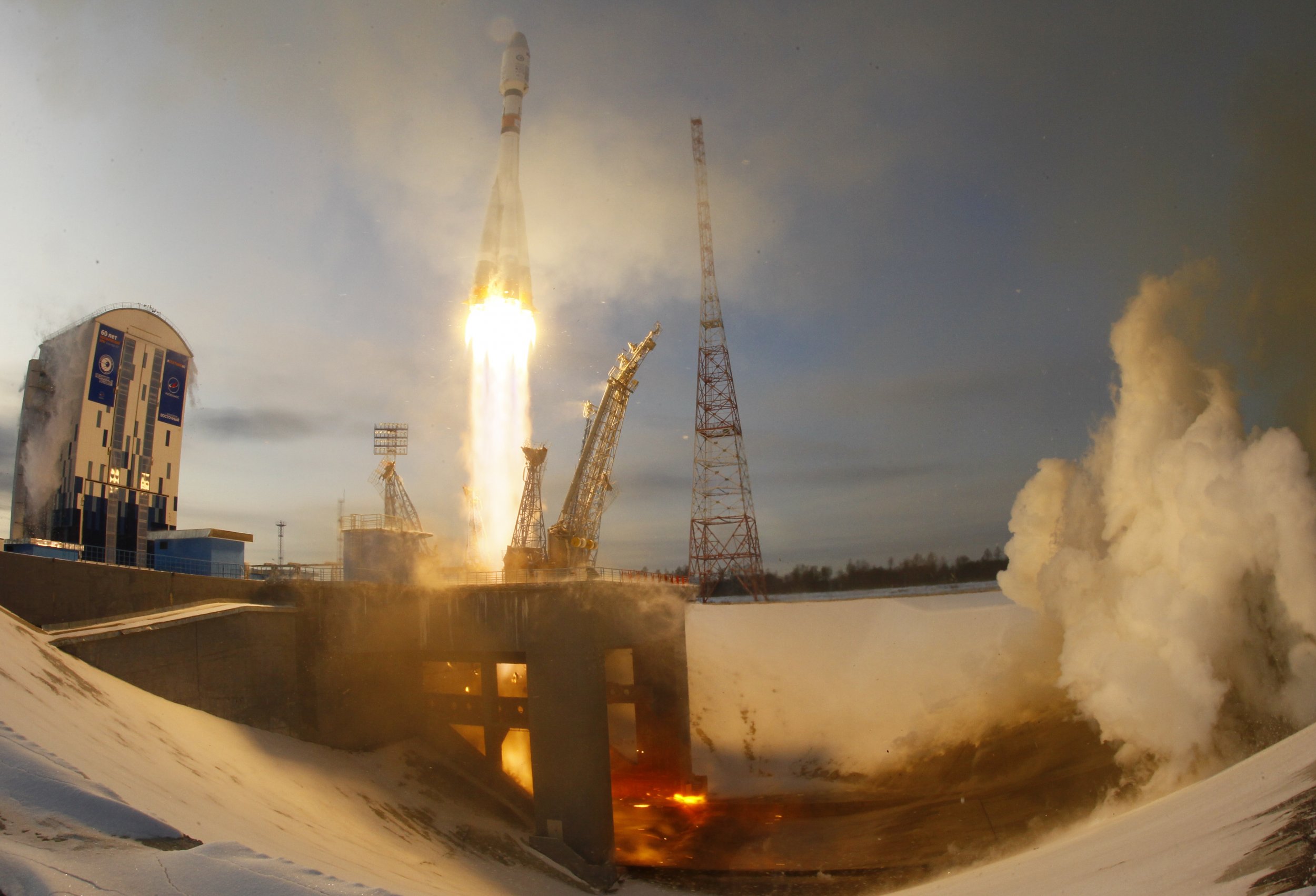
The launch of Russia's newest satellite—its second ever from a multibillion-dollar spaceport unveiled last year—has failed to reach target orbit, state news agency Itar-Tass reports.
The exact fate of the satellite launched in the early hours of Tuesday morning is unclear, but the Russian space agency Roscosmos confirmed by noon local time that they are not receiving signal from Meteor-M 2-1. Mission control is investigating the reason for that, but reports from sources within the agency—speaking on the condition of anonymity—suggest the rocket went awry.
One industry source told the Interfax news agency that it appears the upper segment of the rocket carrying the Russian satellite did not release it effectively into orbit and may have sunk in the Atlantic Ocean. Another similar source told Itar-Tass that the upper stage of the rocket may have exploded as soon as the engine, meant to carry the satellite into orbit, switched on. "It is not clear at the moment what exactly happened," the source said, wondering if the signal to release the satellite faltered or there was an issue with the Fregat booster. Officially the agency has left open the possibility that the satellite is in orbit but simply the wrong orbit.
The Kremlin made it clear that the Russian government is awaiting information on the likely mishap but has no information.
"I do not think that there is detailed information about what happened and for what reason," Dmitry Peskov, spokesman for Russian President Vladimir Putin told Interfax.
The satellite was intended to spend five years in orbit, collecting imagery and data for Russia's state-run weather agency Roshydromet. It is the main one of 19 satellites, most of which are smaller, flying on the same rocket from the spaceport in Russia's Amur region on Tuesday.
The botched satellite launch follows the maiden launch of a spacecraft from Russia's newly unveiled Vostochny Cosmodrome, which Putin has hailed as Russia's biggest building project. The spaceport is located in eastern Russia and seeks to reduce Moscow's dependence on the Baikonur Cosmodrome in neighboring Kazakhstan, developed when the two ex-Soviet states were bound by one space program.
The first launch last year occurred with a slight but very public delay due to a malfunctioning cable, and the attending Putin scolded officials to do better. Overall, the success of the launch was a welcome success for Russia's space sector after multiple funding cuts and other difficulties, curbing the capabilities of the once-great space power.
Although hugely successful in setting milestones in space exploration during the Cold War, Moscow's space ambitions today are much more impressive at the planning stages than at the execution.
Russian scientists are currently aiming to send a robot into space over the next decade, potentially piloting the country's next spacecraft toward the International Space Station.
Uncommon Knowledge
Newsweek is committed to challenging conventional wisdom and finding connections in the search for common ground.
Newsweek is committed to challenging conventional wisdom and finding connections in the search for common ground.
About the writer
I am a Staff Writer for Newsweek's international desk. I report on current events in Russia, the former Soviet Union ... Read more
To read how Newsweek uses AI as a newsroom tool, Click here.








